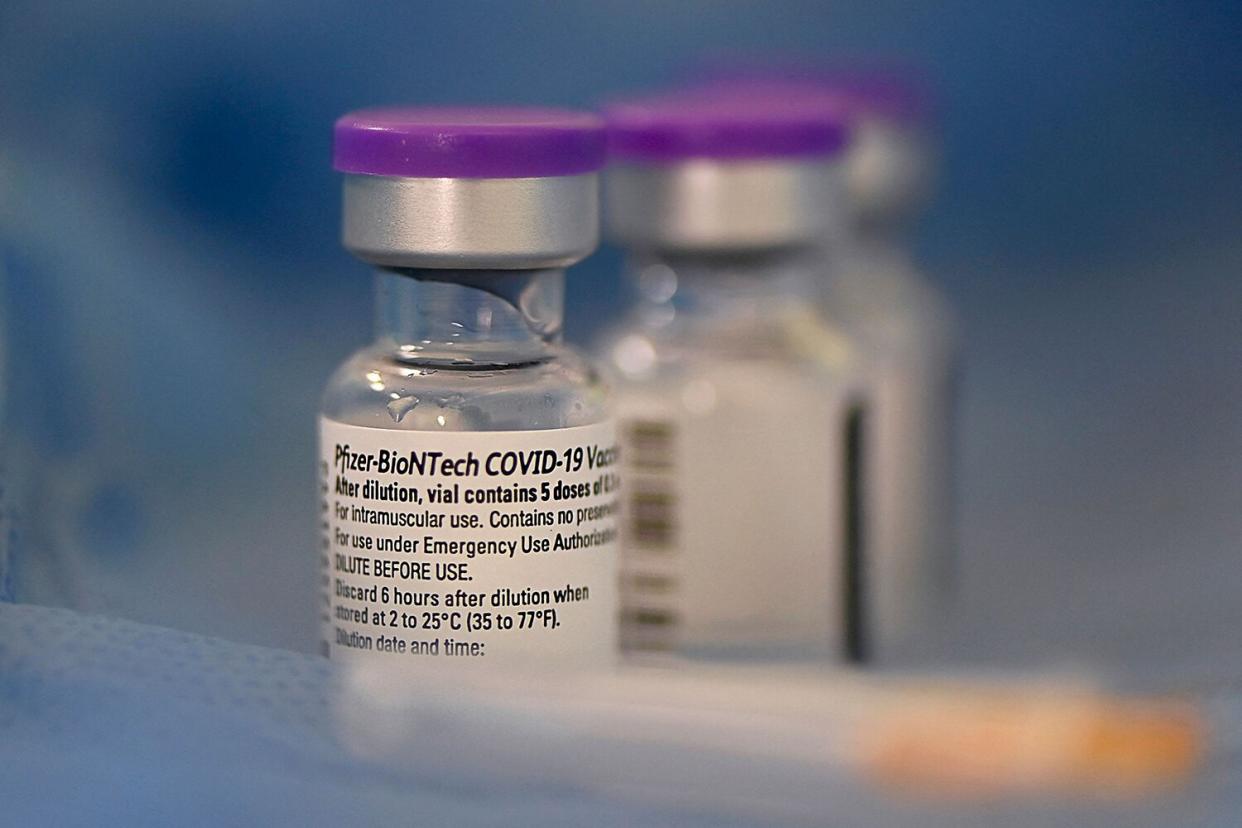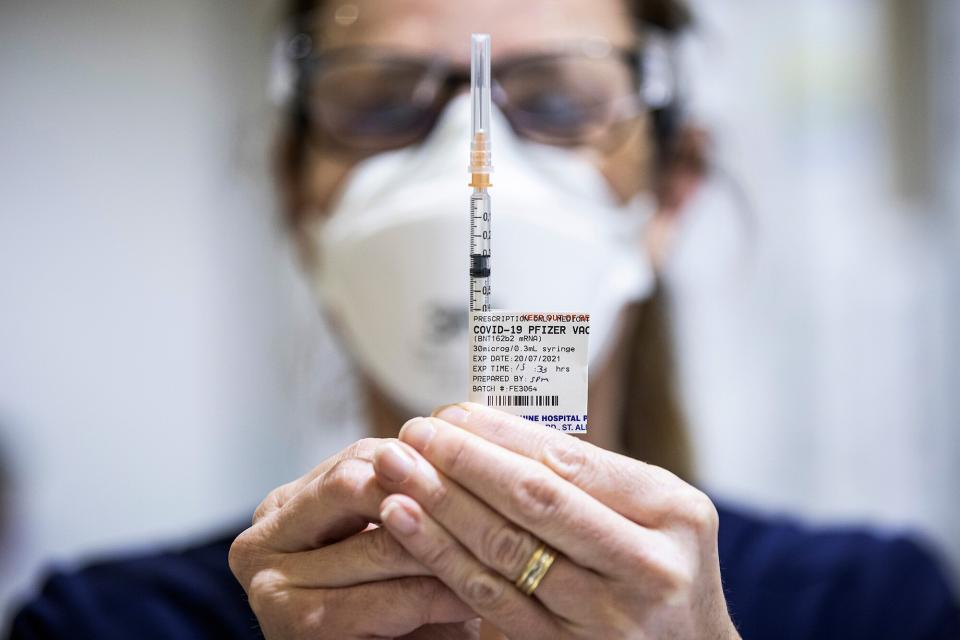Pfizer Starts Clinical Trial to Test Omicron-Specific COVID Vaccine on Adults

LUIS ACOSTA/AFP via Getty
Pfizer and BioNTech have started a clinical trial to test a modified vaccine designed to protect adults against the highly transmissible omicron COVID variant, the companies announced on Tuesday.
The study's 1,420 participants — who range in age from 18 to 55 years old — will be separated into three groups. Researchers will test the effectiveness of the updated vaccine on people who are unvaccinated, fully vaccinated, and fully vaccinated and boosted.
The unvaccinated group will receive three doses of the omicron-specific vaccine while the fully vaccinated group, who previously received a two-dose vaccine, will get one or two additional doses of the modified vaccine. The final group, who previously received both a two-dose vaccine and additional booster shot, will be given a fourth shot of the original vaccine or the new shot.

Daniel Pockett/Getty A dose of Pfizer's COVID-19 vaccine
The companies will study the participants' immune responses to the different vaccination combinations to determine which provides the best protection. Results are expected in the first half of the year, and an omicron-specific shot could be ready as early as March.
The companies also plan to have a separate trial for people who are 55 and older.
"Staying vigilant against the virus requires us to identify new approaches for people to maintain a high level of protection," Kathrin U. Jansen, Ph.D., Senior Vice President and Head of Vaccine Research & Development at Pfizer, said in a statement. "We believe developing and investigating variant-based vaccines, like this one, are essential in our efforts towards this goal."
RELATED: Unvaccinated Adults 65 and Older Are Almost 50 Times More Likely to Be Hospitalized with COVID
Data from the Centers for Disease Control and Prevention, released on Friday, shows that current vaccine boosters provide robust protection against severe illness and hospitalization as the omicron variant spreads across the United States.
On Monday, the New York Times reported the a daily average of 668,312 COVID cases in the U.S., with 156,019 hospitalizations and 2,083 deaths.
Never miss a story — sign up for PEOPLE's free weekly newsletter to get the biggest news of the week delivered to your inbox every Friday.
Another study, published by the medical journal JAMA, revealed that people who received a booster shot were 66% less likely to develop a symptomatic infection from the Omicron variant than those who had received only the initial two-shot vaccine.
RELATED: Fauci Says the FDA Could Approve the COVID Vaccine for Kids Under 5 Next Month
It was remains unclear how the protection will last from the booster shots.
"We may need to boost again. That's entirely conceivable," Anthony Fauci, director of the National Institute of Allergy and Infectious Diseases, said on Sunday's edition of ABC's "This Week". "Before we make that decision about yet again another boost, we want to determine clearly what the durability of protection is of that regular boost."
As information about the coronavirus pandemic rapidly changes, PEOPLE is committed to providing the most recent data in our coverage. Some of the information in this story may have changed after publication. For the latest on COVID-19, readers are encouraged to use online resources from the CDC, WHO and local public health departments. PEOPLE has partnered with GoFundMe to raise money for the COVID-19 Relief Fund, a GoFundMe.org fundraiser to support everything from frontline responders to families in need, as well as organizations helping communities. For more information or to donate, click here.

 Yahoo Movies
Yahoo Movies 
